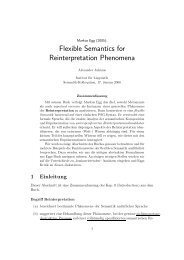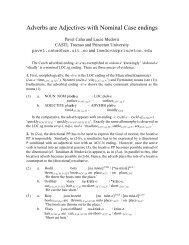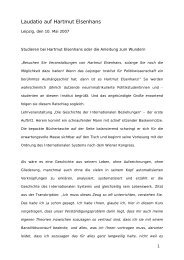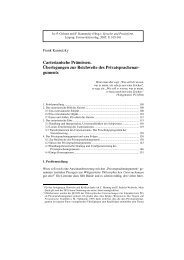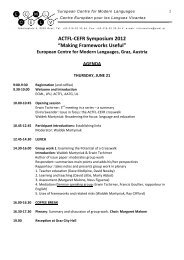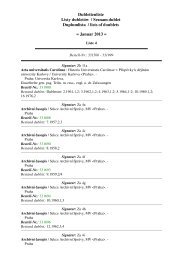2011 ACTFL CEFR Conference Report
2011 ACTFL CEFR Conference Report
2011 ACTFL CEFR Conference Report
You also want an ePaper? Increase the reach of your titles
YUMPU automatically turns print PDFs into web optimized ePapers that Google loves.
learnt. Is that what we want? Are all identifiable elements to be taken as criterial? Are all of equal<br />
importance? If some are to be given greater weight than others, on what principles is such prioritisation<br />
to be based?<br />
Also, as we become more aware of the complexity, both of the elements of proficiency and of their<br />
interrelation, the more we have to recognise the limitations of the concept of level. It seems to<br />
presuppose the even development of competences and their putting into action. We know that this<br />
even development is not the case and that the attempt to make it so is uneconomic and unduly<br />
restrictive. The disparity between recall and recognition skills is well known, as is that between tasks<br />
involving real-time face to face interaction and those free from time pressures and allowing reflection<br />
and the use of reference materials. How is this inevitable unevenness to be incorporated into level<br />
descriptions? Even if such psycholinguistic factors are taken into account, further problems remain.<br />
Learner needs and interests may well mean that some activities are of central importance, others<br />
marginal. Which these are varies widely, especially if, as one hopes, learners keep themselves in touch,<br />
directly or through their access to communications media (radio, TV, Internet etc.), with authentic daily<br />
language use. Furthermore, the response of individual learners to identical stimuli varies with<br />
personality factors (or existential competence as we have called it). As a result, each learner's<br />
proficiency in respect of each of its elements will yield a profile which is likely to be highly, and<br />
appropriately, uneven from one learner to another. The authors of Profile Deutsch recognised this and<br />
so felt it to be their task to organise materials by level, but then to provide an apparatus to allow<br />
learners, teachers and assessors to select and so construct appropriate profiles according to learner<br />
needs, interests, characteristics and experience.<br />
The representation of progress in learning as a succession of discrete levels arises not from the nature<br />
of language learning itself but from the necessities of the social organisation of learning. How then do<br />
we reconcile the need to handle teaching and assessment in socially viable groups with the natural<br />
diversity of learners and their progress in language learning? This is, I think, a fundamental problem with<br />
which this conference may wish to concern itself in its discussions and in the planning of research and<br />
theoretical reflection in preparation for its next meeting in a year’s time.<br />
The major themes with which your sessions and, no doubt, informal discussions will be concerned,<br />
seem, then, to be: first, the analysis of the elements of language proficiency, covering both what is<br />
required of a proficient language user/learner in putting into action the skills and knowledge acquired<br />
through formal teaching and informal experience. Secondly, how these elements can be selected and<br />
prioritised in different situations of learning, teaching and assessment. Thirdly how progress in<br />
proficiency in respect of the various elements can be calibrated and related to a perhaps socially<br />
necessary sequence of levels of overall proficiency. A further important question is: How far can levels of<br />
proficiency be described in terms applicable to all languages and what must necessarily be stated on a<br />
language-specific basis? Finally, how can our understanding of these issues contribute to the<br />
development of fully democratic practices in the language field and particularly to the quality,<br />
transparency, and global portability of language qualifications and the development of international<br />
arrangements to ensure their global portability. The need for such arrangements is now abundantly<br />
clear. The progress you can make towards their development on a rational basis, free from political



